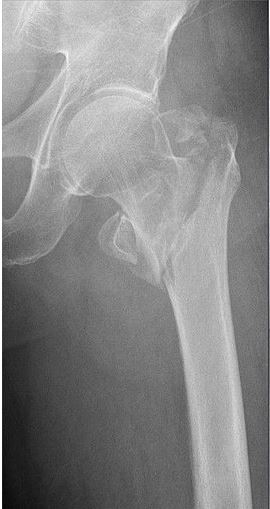Governments pushing meat-free diets for weather control might want to follow the other science…

A 20 year study of 26,000 women showed that people who ate vegetarian diets were 33% more likely to break their hips. This is no small point because hip fractures are a surprisingly bad thing. Short term mortality risk increases by 2 to 8 fold. (Not just a 20% increase but a 200% increase or worse). Hip fracture victims are more likely to go back to hospital, and not for their hips but mostly for other things like infections and heart conditions. Sadly as much as 17% of their remaining post fracture life may be spent in a nursing facility. (see Lo et al 2022)
Vegetarian women are at a higher risk of hip fracture
Webster et al, University of Leeds
Among 26,318 women, 822 hip fracture cases were observed over roughly 20 years—that represented just over 3% of the sample population. After adjustment for factors such as smoking and age, vegetarians were the only diet group with an elevated risk of hip fracture.
Researchers can only guess why and suggest vaguely that it might be a lack of protein, calcium, and other micronutrients.
I suspect vegetarians are missing out on Vitamin K2 which is important for getting calcium into bones and comes from things like liver, eggs, meat, hard cheese, brie, and butter. It also comes from Natto (fermented soy) but not many people eat that outside Japan. But it could be many things, like deficiencies in zinc, iodine, choline, and B12, or just an imbalance of amino acids that make up bones (like glycine). The fracture itself might not raise mortality, but the same deficiencies that weaken bones or reduce balance might also weaken hearts.
It’s worth knowing that despite the press hype, vegetarians have about the same mortality rate as meat eaters, they just die of slightly different things.
Despite vegetarian diets “gaining popularity” lately, they are still only 5 to 7% of the population:
Vegetarian diets have gained popularity in recent years, with a 2021 YouGov survey putting the size of the UK vegetarian population at roughly 5-7%. It is often perceived as a healthier dietary option, with previous evidence that shows a vegetarian diet can reduce the risks of several chronic diseases, including diabetes, heart disease, and cancer compared to omnivorous diets.
Get ready for the advertising:
There is also a worldwide call for reducing the consumption of animal products in an effort to tackle climate change.
So nine out of ten people say they “believe in climate change” but only half of one of them will give up meat?
Dietary information was collected using a food frequency questionnaire and was validated using a 4-day food diary in a subsample of women.
At the time they were recruited into the cohort study, the women ranged in age from 35 to 69 years.
Given the severity of hip fractures, bureaucrats might want to think twice about national policies which are essentially waving steaks at storms.
REFERENCES
Webster et al (2022) Risk of hip fracture in meat-eaters, pescatarians, and vegetarians: results from the UK Women’s Cohort Study, BMC Medicine (2022). DOI: 10.1186/s12916-022-02468-0
Lo et al (2022) Trends in Mortality Following Hip Fracture in Older Women, The American Journal of Managed Care, March 2015, Volume 21, Issue 3
Photo: Hellerhof